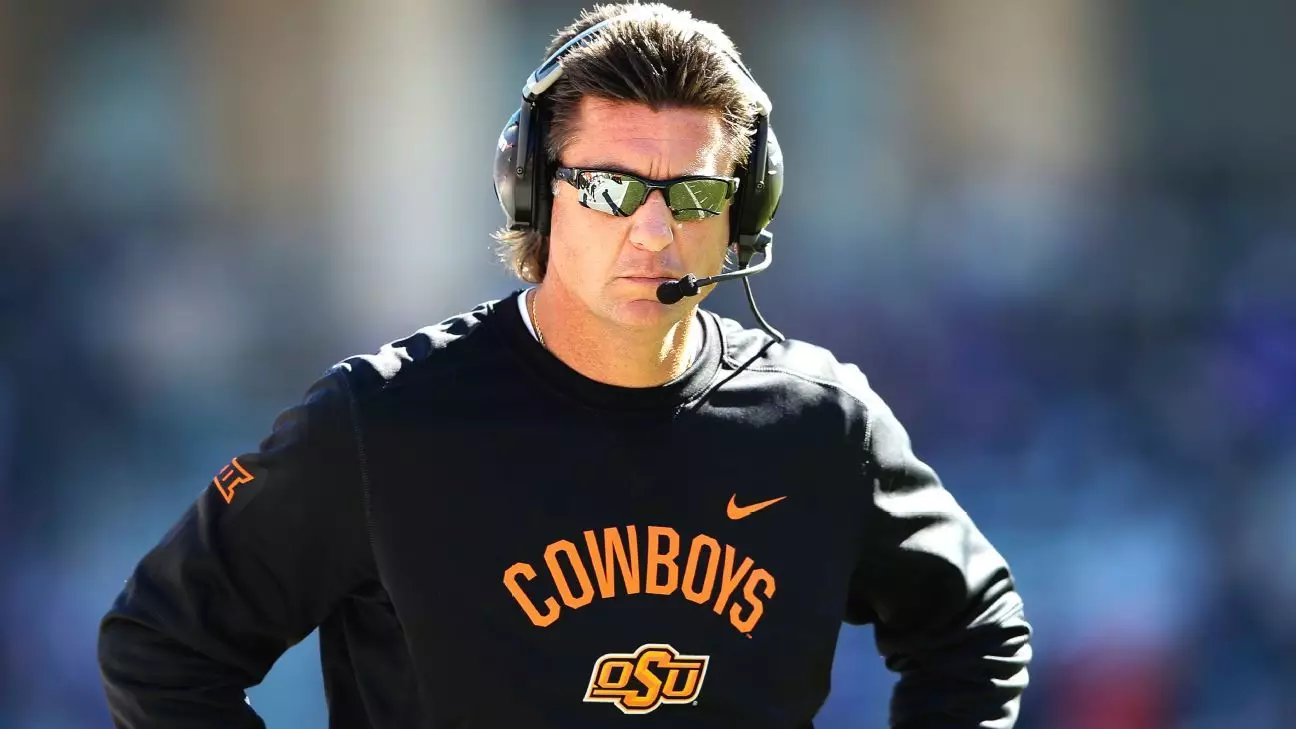Oklahoma State University (OSU) and head football coach Mike Gundy have reached a critical juncture in their relationship, culminating in a newly negotiated contract that allows Gundy to continue at the helm of the Cowboys’ program. The decision, which follows discussions between OSU administrators and the Board of Regents, signals a moment of both reconciliation and uncertainty. Factors leading to this contract restructuring range from Gundy’s past successes to recent struggles, culminating in a decision fraught with implications for the future of the program.
On the heels of a dismal season, where the Cowboys finished with a record of just 3-9, Gundy’s contract was put under scrutiny. As Oklahoma State’s all-time winningest coach, Gundy boasts a career record of 169-88 since taking charge in 2004 and has a history of successes, including a Big 12 Championship in 2011. Yet, his recent subpar performance has brought the program’s future into question, prompting the Board of Regents to convene to discuss his future and overall structure of the football staff.
The concerns surrounding Gundy were not merely anecdotal but reflected a larger conversation about accountability and performance within the OSU athletic framework. While the university’s president, Kayse Shrum, and athletic director, Chad Weiberg, publicly supported Gundy, dissent among regents showcased a fractured perspective on Gundy’s leadership abilities. This environment of uncertainty about Gundy’s leadership led to a marathon of discussions about a potential restructuring that would accommodate both revenue sharing with players and a reduction in Gundy’s substantial buyout.
The freshly restructured contract reduces Gundy’s previous annual salary of $7.75 million, redistributing those savings to revenue sharing initiatives designed to benefit players. The initial proposal faced hurdles, particularly in how much Gundy was willing to concede. His prior contractual obligations would have secured a massive $25.3 million if he had been dismissed without cause—a fact that would have deeply impacted OSU’s financial landscape.
While being open to salary cuts is commendable, this willingness to adapt does not absolve Gundy from the scrutiny of a fan base that expects consistent results. His prior decisions, including the firing of offensive and defensive coordinators, further underline the transitional phase Gundy is navigating. This makes it imperative for Gundy to demonstrate adaptability and strategic acumen moving forward.
Moving forward, the upcoming season will serve as a fulcrum for Gundy’s career trajectory. His history at Oklahoma State is impeccable, marked by standout seasons and a legacy as a former OSU quarterback. However, he now faces the dual challenge of maintaining player trust and enhancing competitive performance amid growing pressures for accountability from both fans and university officials. The board’s discussions also indicated a desire for more oversight in coaching hires—an element that could either fortify or hinder Gundy’s authority.
Moreover, there’s the question of culture within the program. Past incidents, like the criticism from former star running back Chuba Hubbard that prompted Gundy to take a $1 million pay cut in 2020, showcase that the coach’s relationship with players has occasionally been strained.
As Oklahoma State transitions into this new era with Gundy, it remains to be seen how the restructured contractual framework will impact the overall dynamics of the football program. Gundy will need to apply lessons learned from previous seasons, integrating new strategies while fostering a culture of trust and transparency within the team. Fans and stakeholders alike will be keeping a watchful eye as the Cowboys aim to reclaim their reputation both locally and nationally. With high expectations accompanying this contract renewal, the next steps will not only define Gundy’s future but also Oklahoma State’s standing in collegiate football.



Leave a Reply